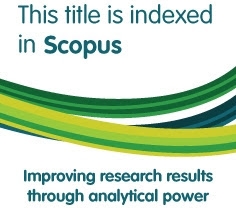Managing Islam In Singapore: A Strong And Resilient State
Abstract
The Malay-Muslim community makes up about 13.4 per cent of the 5.6 million Singapore population. The relationship between the community and the state has been amicable, although there were instances of tension. Since the 1970s, it has undergone what observers portray as an Islamic resurgence. Drawing from Fukuyama’s state capacity paradigm, the Singapore state, led by the People’s Action Party (PAP) government, can be considered a strong state. The notion of ‘strong’ here does not necessarily mean illiberal or authoritarian state—as political observers represent it to be—but can also mean ‘effective’. This article examines Singapore’s effectiveness in managing state-Malay community relations particularly on issues of security and religiosity. It argues that the state’s strength does not derive from the use of hard power or legislations, but from its flexibility and deep knowledge of when, what and how to intervene. It concludes with a discourse on how the state deals with challenges to its strength in more recent political science framework about weakening the state or the end of power.
Keywords
Full Text:
PDFReferences
Aisha, Noor, Abdul Rahman, and Ah Eng Lai. 2006. “Introduction.” In Secularism and Spirituality: Seeking Integrated Knowledge and Success in Madrasah Educaiton in Singapore, by Abdul Rahman Noor Aisha and Ah Eng Lai, 1-5. Singapore: Institute Policy Studies and Marshall Cavendish.
Aisha, Noor, Abdul Rahman, and Azhar Ibrahim. 2017. Malays. Singapore: Institute Policy Studies and Straits Times Press.
Alatas, Syed Hussein. 1977. The Myth of the Lazy Native. London: Frank Cass amd Company Ltd.
Azhar, Ibrahim. 2018. “Contemporary Middle Eastern Islamic Thought and Its Transmission in Indonesia: A Critical Assessment.” In Islam in Southeast Asia: Negotiating Modernity, by Norshahril Saat, 112-139. Singapore: ISEAS.
Chandra, Muzaffar. 1987. Islamic Resurgence in Malaysia. Petaling Jaya: Fajar Bakti.
______. 2002. Rights, Religion and Reform: Enhancing Human Dignity through Spiritual and Moral Transformation. London: Routledge
Department of Statistics Singapore. 2019. Population and Population Structure. September 25. https://www.singstat.gov.sg/find-data/search-by-theme/population/population-and-population-structure/latest-data.
Fukuyama, Francis. 2005. State Building: Governance and World Order in the Twenty-First century. London: Profile Books.
Ismail, Kassim. 1974. Problems of Elite Cohesion: A Perspective from a Minority Community. Singapore: Singapore University Press.
Kassim, Yang Razali. 2016. “AMP and the Idea of Collective Leadership.” In Majulah! 50 Years of Malay/Muslim Community in Singapore, by Rasheed Zainul Abidin and Saat Norshahril, 143-148. Singapore: World Scientific Press.
Leifer, Michael. 2000. Singapore’s Foreign Policy: Coping with Vulnerability. New York: Routledge.
Mutalib, Hussin. 2000. Illiberal Democracy and the Future of Opposition in Singapore. Third World Quarterly, 21 (2):313-342.
______. 2004. Parties and Politics: A Study of Opposition Parties and the PAP in Singapore, 2nd ed. Singapore: Marshall Cavendish.
______. 2012. Singapore Malays: Being Ethnic Minority and Muslim in a Global City-State. Oxon; New York: Routledge.
Al-Naim, Abdullai Ahmed. 2008. Islam and the Secular State: Negotiating the Future of Shari’a. Cambridge, Massachusetts, and London: Hawvard University Press.
Naim, Moises. 2012. The End of Power. New York: Basic Books.
Nathan, KS. 2002. “Malaysia-Singapore Relations: Retrospect and Prospect,” Contemporary Southeast Asia, 24 (2): 385-410
PERGAS. 2004. Moderation in Islam. Singapore: Pergas.
Rahim, Lily Zubaidah. 1998. The Singapore Dilemma: The Political and Educational Marginality of the Malay Community. Kuala Lumpur: Oxford University Press.
Saat, Norshahril, Azhar Ibrahim, and Noor Aisha. 2020. Reaching for the Crescent: Aspirations of Singapore Islamic Studies Graduates and the Challenges. Singapore: ISEAS
Saat, Norshahril. 2014. ‘‘Deviant’ Muslims: The Plight of Shias in Contemporary Malaysia’ in Religious Diversity in Muslim-Majority states in Southeast Asia: Areas of Toleration and conflict (ed) Bernhard Platzdasch and Johan Saravanamuttu, 359-278. Singapore: ISEAS
______. 2022. Race-based Self-help Groups and Their Relevance. In Social Context, Policies, and Changes in Singapore: Beyond the First 50 Years, 241-254. Singapore: World Scientific Press.
Teo, Joyce. “Coronavirus: WHO praises Singapore’s containment of Covid-19 outbreak,” Straits Times, 10 March.
Teo, Youyenn. 2018. This is What Inequality Looks Like. Singapore: Ethos Book.
DOI: https://doi.org/10.36712/sdi.v29i2.25215
Refbacks
- There are currently no refbacks.

All publication by Studia Islamika are licensed under a Creative Commons Attribution-NonCommercial 4.0 International License.
Studia Islamika, ISSN: 0215-0492, e-ISSN: 2355-6145
View My Stats
